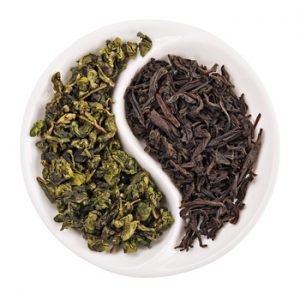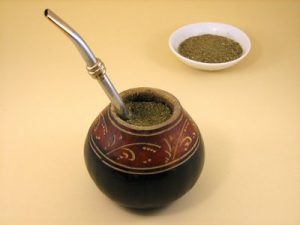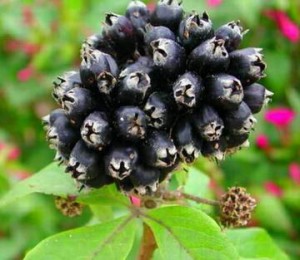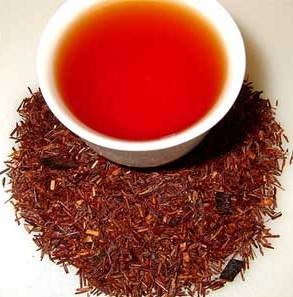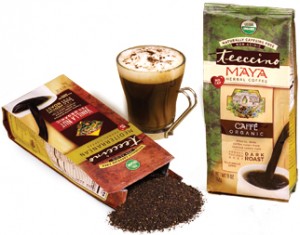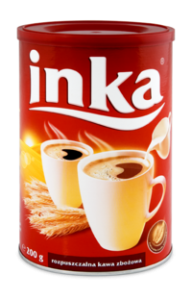Consumed in moderate amounts, coffee provides several health benefits, such as the detoxifying function through its diuretic effect, preventing type 2 diabetes and several types of cancer, and improving brain function. The only problem is that many people drink more than just 1 cup daily, and too much coffee also has negative side effects. Some of the most common are caffeine addiction, elevated blood pressure, increased risk of coronary artery disease, and dehydration.
As a result, unless you can’t drink coffee at all because of a health condition, it’s best to consume only moderate amounts of coffee and switch to caffeine-free alternatives or with less caffeine to avoid the negative effects of excessive caffeine intake.
Excellent healthy alternatives to coffee
Low-caffeine alternatives
Green Tea – Containing a low amount of caffeine (on average 30 -50 mg/cup compared to coffee’s 100 mg/cup) but high amounts of antioxidants and polyphenols, green tea has numerous health benefits. It is commonly used as a dietary aid as it raises the metabolism, prevents diabetes, lowers heart disease risk and fights infections.
Black Tea – The caffeine content of black tea varies a lot, but it is still significantly lower than in coffee. Some of the most popular black tea blends include Earl Grey, Irish Breakfast, English Breakfast, Chai, and Ceylon.
Cocoa Powder – Also known as cocoa or cacao, it is produced by crushing the nibs of cacao beans to a paste called cocoa liquor. Cocoa powder is the solid, non-fat part of cocoa liquor, cocoa butter being the other part. Cocoa powder is rich in flavonoids and contains magnesium, zinc, calcium, and iron. Among the multiple benefits of cocoa powder worth mentioning are its role in improving cardiovascular health and blood circulation and enhancing learning abilities and memory.
Cocoa powder is usually prepared with milk, sugar or other sweeteners. While a hot cup of cocoa will give you a good energy boost, its caffeine content is rather low – just 8 mg of caffeine in one tablespoon of cocoa powder.
Yerba Mate – A plant that originates in South America used to make the mate beverage, which is very popular in several South American countries like Argentina, Uruguay and Paraguay. It is actually a tea, made by steeping dried leaves of Yerba Mate in hot water.
Mate contains antioxidants, vitamins B & C, magnesium, potassium, zinc and three types of stimulants: caffeine, theobromine and theophylline. Caffeine is the main one and usually a cup of mate doesn’t contain more than 70 mg of caffeine, although amounts can vary based on Yerba Mate varieties and preparation method.
Siberian Ginseng Tea – The Siberian Ginseng is different from Chinese Ginseng even though both plants come from the same family. Siberian Ginseng’s active compounds are eleutherosides and it has a woody root while the Chinese Ginseng contains ginsenosides and it has a fleshy root.
The Siberian Ginseng tea has multiple benefits: it boosts your energy, helps fight fatigue, improves memory and learning, enhances the immune function, and it acts as a mild anti-inflammatory.
Nevertheless, Siberian Ginseng tea can reduce the need for high blood pressure medication and if such is your case, it’s recommended to consult your doctor.
Caffeine-free alternatives
Rooibos Tea – Rooibos is a broom-like plant that grows in South Africa’s Western Cape region. Besides the fact that it’s caffeine-free, through its low level of tannin and high level of antioxidants and flavanols, Rooibos tea assists with nervous tension, allergies and digestive problems. It is also used as a natural remedy against insomnia, asthma and dermatological problems.
Carob Powder – Made out of carob pods in roasted form it has a flavor similar to chocolate. That is why carob powder is also a great alternative to cocoa powder. Carob powder beverages are usually made with cow’s milk, soy milk or cream and sweeteners like honey and sugar.
Caffeine-free and naturally sweet carob powder contains flavonols and polyphenols, which act like antioxidants, vitamin A, B vitamins and several minerals. Some of the most important health benefits of carob powder are its expectorant effect that eases coughs along with its ability to lower LDL cholesterol levels and relieve asthma and diarrhea.
Caffeine-free Coffee Substitutes
Teeccino Tea – A blend of roasted and ground herbs, fruits, grains and nuts with a flavor similar to coffee, designed specifically as a caffeine-free, healthier coffee alternative. All Teeccino products can be brewed like coffee and contain carob pods, barley and chicory root. Other ingredients, namely dates, figs, almonds and ramon seeds are used to create the taste differences between Teeccino’s Maya and Mediterranean flavor lines.
Several roasted grain beverages are present on the market, most of them soluble, which are used as coffee alternatives because they provide a coffee-like taste without caffeine. Some of the most popular ones are:
Inka – Roasted mixture of rye, barley, chicory and sugar beet
Pero (known as Caro in Europe) – Soluble blend of roasted barley, malted barley, chicory and rye
Roma – Made of roasted barley, roasted malt barley, roasted chicory and roasted rye
Cafix – Roasted barley, malted barley, chicory, figs, red beet extract.
Roastaroma – Tea made of roasted barley, roasted chicory, roasted carob, cinnamon, allspice and Chinese star anise.

